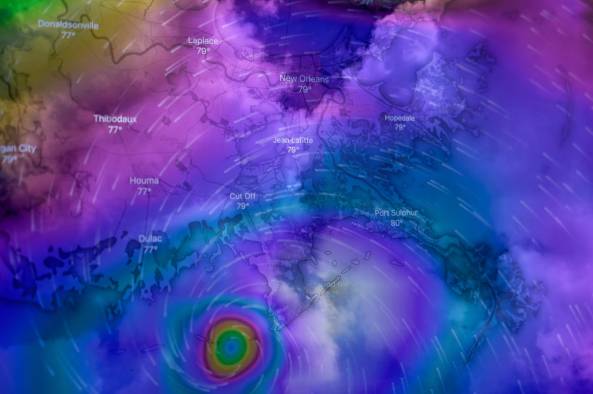For years, weather forecasting has been a critical aspect of business planning, travel, and everyday life. Accurate predictions about the weather have helped farmers determine the best planting dates for their crops, shippers plan ahead to avoid delays, and even governments prepare for natural disasters.
However, what if we could predict the weather with even greater accuracy? Thanks to artificial intelligence, that day has arrived.
Here is how AI has improved weather forecasting technology.
Improved Real-Time Weather Forecasting
AI has made weather forecasting more accurate. It is because AI can process more data than human forecasters, process it faster, and do so consistently. That is why you will see weather APIs these days providing more than just weather reports. The weather API by Tomorrow.io does so with the utmost precision. It provides intelligent and real-time weather updates and actionable insights, making sure users are up to speed on the latest weather conditions.
AI can process all sorts of information about the atmosphere and environment on a global scale quickly. That means it can generate forecasts with greater precision than a human could by hand. By taking into account factors such as wind speed and direction, temperature, humidity levels, and other environmental conditions, AI makes more accurate predictions about future weather events.
Accurate Forecasts for Special Events
AI can provide accurate forecasts for special events. One of the most exciting developments in weather forecasting is the ability of AI to predict the weather for a specific event.
For example, if you are planning a wedding or a funeral, you may want to know if it will be sunny on that day. With recent advances in artificial intelligence, this is now possible. AI can also be used to make predictions about your individual location, allowing you to find out how sunny it will be on your street next Saturday afternoon at 3 PM local time.
The future of artificial intelligence applications in forecasting will likely include more complex forecast models based on machine learning algorithms. These applications would allow us not only to predict what kind of weather we will have the next day but also which route our car should take to avoid poor weather conditions.
Improved Hurricane Forecasts
Harvey, Irma, and Maria were all devastating hurricanes that formed in the Atlantic Ocean in 2017. While they did not hit the same areas on land, they did share one thing in common. The National Hurricane Center’s (NHC) official forecast missed their paths by hundreds of miles. The NHC uses a variety of tools to make its predictions, including satellite images and computer models. Now, however, AI is playing an increasingly important role in improving forecasts for future storms.
A study published last year found that AI-powered weather forecasting could have significantly reduced evacuations from Hurricane Floyd if it had been used back then instead of traditional forecasting methods.
Better Understanding of Local Weather Risks and Rewards
AI has the potential to help you understand your local weather risks and rewards. AI can help you figure out what kind of climate you are running a business in, whether it is more prone to flooding or drought, which crops are best suited for a particular area, and so on.
AI can also help consumers understand their own personal climate profile. For instance, it can tell them how their daily lives will be impacted by the changing seasons and long-term trends.
AI has been used to create personalized seasonal forecasts for millions of people around the world. An understanding of local weather risks and rewards is important for communities as well as businesses, whether they are planning new construction projects or helping people prepare for natural disasters like hurricanes.
Predicting Weather Risks in Specific Industries
One of the largest impacts of artificial intelligence on weather forecasting is its ability to improve the accuracy of risk assessments for certain industries. These include aviation, agriculture, and energy.
The weather has a huge impact on these three industries. It can affect travel schedules and lead to crop failures or power outages. To predict the risks associated with specific scenarios, forecasters must consider multiple variables such as temperature, wind speed, and precipitation amounts. AI oversees all those factors simultaneously, which is why it can provide better and more accurate predictions.
We can all sleep a little easier thanks to the advances in AI. In years past, people feared the ultimate destruction that could be caused by extreme weather in the form of hurricanes, tornadoes, and other dangerous storms. Now, with our improved understanding of how weather works and how to predict it, we can prepare for these events much more effectively than before. Artificial intelligence played a vital role in that regard.






![YouTube SEO in 2024 [Definitive Guide]](https://getpixie.com/wp-content/uploads/2024/02/shutterstock_1684828252-1-150x150.jpg)








